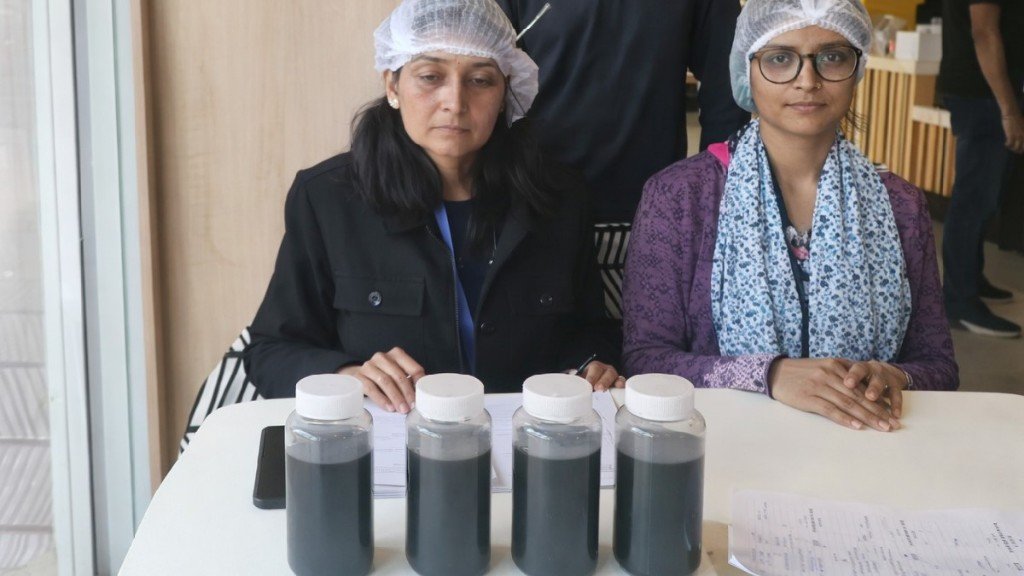Peppermint is no less than a superfood. Its oil, which is known as menthol, comes with a host of health and beauty benefits, right from soothing an upset stomach and treating cold to relieving stress and skin irritation. No wonder in the ancient times it was used as an herbal medicine across various cultures. But did you know that peppermint could also help treat difficulty in swallowing food and non-cardiac chest pain?! Yes, that's right! According to a new study, published in Digestive Diseases Sciences, eating peppermint may ease your chest pain and problems in swallowing food.
"Peppermint oil is an established agent in the treatment of irritable bowel syndrome. We tried to examine its effect on patients with swallowing and chest pain issues with no apparent cause," said Mohamed Khalaf, first author of the study.
Of the 38 patients enrolled in the pilot study, overall 63 percent reported improvement of the symptoms. Patients were recruited from the Oesophageal Disorders Clinic. "Our findings suggest that peppermint may help prevent these symptoms by relaxing the smooth muscle in the lower oesophagus," said Donald O. Castell, senior author of the study.

Peppermint oil is an established agent in the treatment of irritable bowel syndrome.
Benefits Of Peppermint Oil
Peppermint oil has been known to have therapeutic effects in multiple disorders due to its muscle-relaxing properties. However, only two previous studies have investigated its role in the upper digestive tract. According to DK Publishing's book 'Healing Foods' states, "Menthol, the active oil in mint, is responsible for the antiseptic and antibacterial properties that make it a good choice for relieving indigestion, irritable bowel syndrome, and soothing an upset stomach. Its adaptogenic properties mean it can help balance the body in whatever way is needed, so it can be both invigorating and mildly sedative. It also fortifies the nervous system and helps to relive headaches."
Observation:
The study found that patients who took peppermint oil tablets before eating felt better after meals than those who did not. Those with both non-cardiac chest pain and unobstructed difficulty swallowing saw the most benefits: 73 percent of them reported feeling better. Of patients with just one of the symptoms, those with non-cardiac chest pain had a more positive response from the peppermint oil (63 percent) than those with difficulty swallowing (53 percent).
The results were even better among patients with spastic disorders of the oesophagus: 83 percent reported feeling better or slightly better. Although less well-known than oesophagal disorders such as acid reflux, spastic disorders of the oesophagus can also disrupt a patient's life.
In these disorders, the oesophagus undergoes painful spasms that can interfere with eating. Because the spasms occur only from time to time, these disorders are difficult to diagnose and treat. The current standard of care calls for these disorders involves trying multiple drugs, including tricyclic antidepressants and calcium channel blockers, and hoping that one works. Peppermint offers an attractive first line of defence for these patients, who experience intermittent symptoms because they can take it freely as symptoms occur.

Peppermint oil has anti-microbial, anti-septic and anti-inflammatory properties, and acts as a mild sedative and natural pain killer.
"In this study, patients who had experienced difficulty swallowing took two pieces of a commercially available peppermint right before meals. Those with chest pain took the peppermint tablets as needed," said Khalaf.
The study highlights the effects of the so-called Charleston Approach, which advocates a "start low and go slow" treatment strategy. The Charleston Approach differs from the current standard of care in that it uses peppermint oil as a first attempt to relieve symptoms.
Castell and Khalaf caution that patients must first be examined by a doctor to rule out heart disease and undergo a procedure known as an endoscopy to rule out obstruction before they are offered peppermint as a first-line treatment. Endoscopy involves inserting a flexible tube fitted with a light and camera into the oesophagus.
Shortcoming Of The Research:
One of the drawbacks of the study was that researchers did not know the precise dosage of peppermint being given since it was a commercial candy (only one type of which was effective) with a proprietary recipe. Another was the study relied on self-reporting by patients to determine whether symptoms improved.
Although the preliminary findings of this study are promising, they need to be confirmed in a trial that compares outcomes in patients who receive a specific dose of peppermint oil and those who receive only a placebo.
In the meantime; however, patients who have been diagnosed as having spastic disorders of the oesophagus and who have no heart disease or obstruction can try using peppermint to see if it relieves their symptoms. "Given the safety profile, low cost, and widespread availability, there are no risks from empirical use of peppermint oil," said Khalaf.







